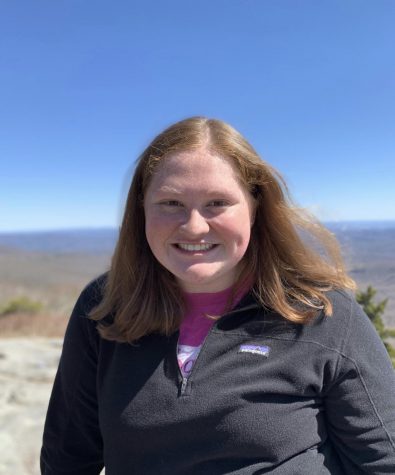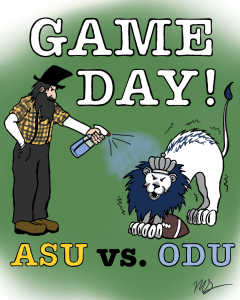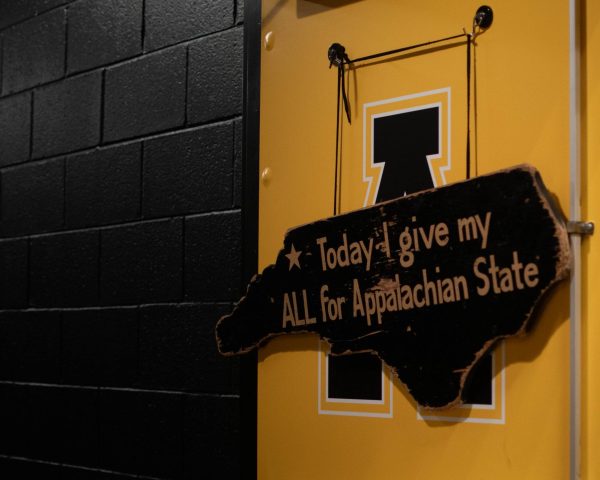Dominique Hammonds receives award for creativity in clinical supervision
December 6, 2018
Dominique Hammonds, assistant professor in the Department of Human Development and Psychological Counseling, was awarded the 2018 Association for Counselor Education and Supervision Supervision Award.
The award, which honors a counseling supervisor who displays excellence and creativity in clinical supervision, was given to Hammonds at the Southern ACES Conference in Myrtle Beach, South Carolina.
Hammonds, who has been at App State for four years, said that she did not expect to receive the award, but it was “exciting and humbling to be recognized for something I’m very passionate about.”
To receive the award, Hammonds was nominated by Christian Chan, who described Hammonds as a “dear friend, colleague and mentor” of his. He explained there were several factors that led him to nominate Hammonds for the award.
“She was somebody who needed to get this award because supervision is something that she loves deeply and contributes to and is creative with,” Chan said.
He also added that he felt the description of this award truly fit her and he hoped to “see particularly historically marginalized individuals represented.”
“I really wanted her to be recognized because she embodies so much of what we see in terms of multiculturalism, diversity and social justice, not just through her representation, but also through her practice,” Chan said.
Hammonds created the Dramatized Experiential Supervision Model and she received a copyright for the model in spring 2018. The model is widely used by other colleagues at other institutions, Chan said.
Hammonds said the Dramatized Experiential Supervision Model “is a fun, active method of dramatizing clinical feedback, rather than the typical, using words way of giving feedback.” She has been using the model for two years and has received strong feedback with it.
“Her work is valuable and important for our profession and there should be a light that shines upon it and it should be celebrated,” Chan said.
A significant part of the model is training students to be multiculturally competent, to be aware of how to work with various groups of individuals and to know how to understand “what might be impacting a client even if they don’t bring it up,” Hammons said.
Julia Corley, who graduated from App State’s Clinical Mental Health Counseling Program in May, was one of Hammonds’ student references and said the unique model helped shape her experiences in the program.
Corley said the model brought supervision to life in a way that was palpable and poignant, but also gave students an embodied experience.
“What I loved about it is it just helped me and my classmates really feel different elements of what is going on with a client,” Corley said.
Corley said using the model wasn’t as simple as learning new techniques.
“We had multiple experiences where we all had tears in our eyes, our hearts were open, things where we weren’t just thinking intellectually about what to do (with a client), we were really feeling into our humanity,” Corley said.
Corley said she and her peers looked forward to going to supervision with Hammonds every week because it was a safe place to bring up things they were struggling with.
“I knew I was going to learn a lot and I knew that we were going to dig deep, but she made it really safe to be vulnerable,” Corley said.
Blake Crooks, graduate of the Clinical Mental Health Counseling Program, said Hammonds inspired many individuals in the program not only because of who she is as a person, but as an educator.
“A lot of my peers in the program always joked about her being a superhuman because she just is this embodiment of who we want to be as counselors, as well as people,” Crooks said.
Corley echoed Crooks’ feelings toward Hammonds as a person.
“She’s so kind and she’s so clear and she’s really non-judgemental and she’s funny. She’s just a good person to be around,” Corley said
Chan has also been heavily influenced by Hammonds.
“There isn’t a way to quantify the meaning and inspiration she’s given me as a counselor educator,” he said. “She is somebody who has just put out so many really creative ideas and work and I really felt like regardless of whatever circumstances or conditions, that she should be recognized.”
Hammonds said she hopes to continue to bring her personality into her work and “hold students accountable for what they’re doing out in the field and to help them continue to explore case conceptualization and use of theory.”
“It’s inspiration for me moving forward as well. I love what I do, there’s something so satisfying in the work of being a teacher, a counselor, a professor, but I would say supervision is where the rubber meets the road as far as training students to go out into the profession, and that is such valuable work,” Hammonds said.
Story by Erin O’Neill













